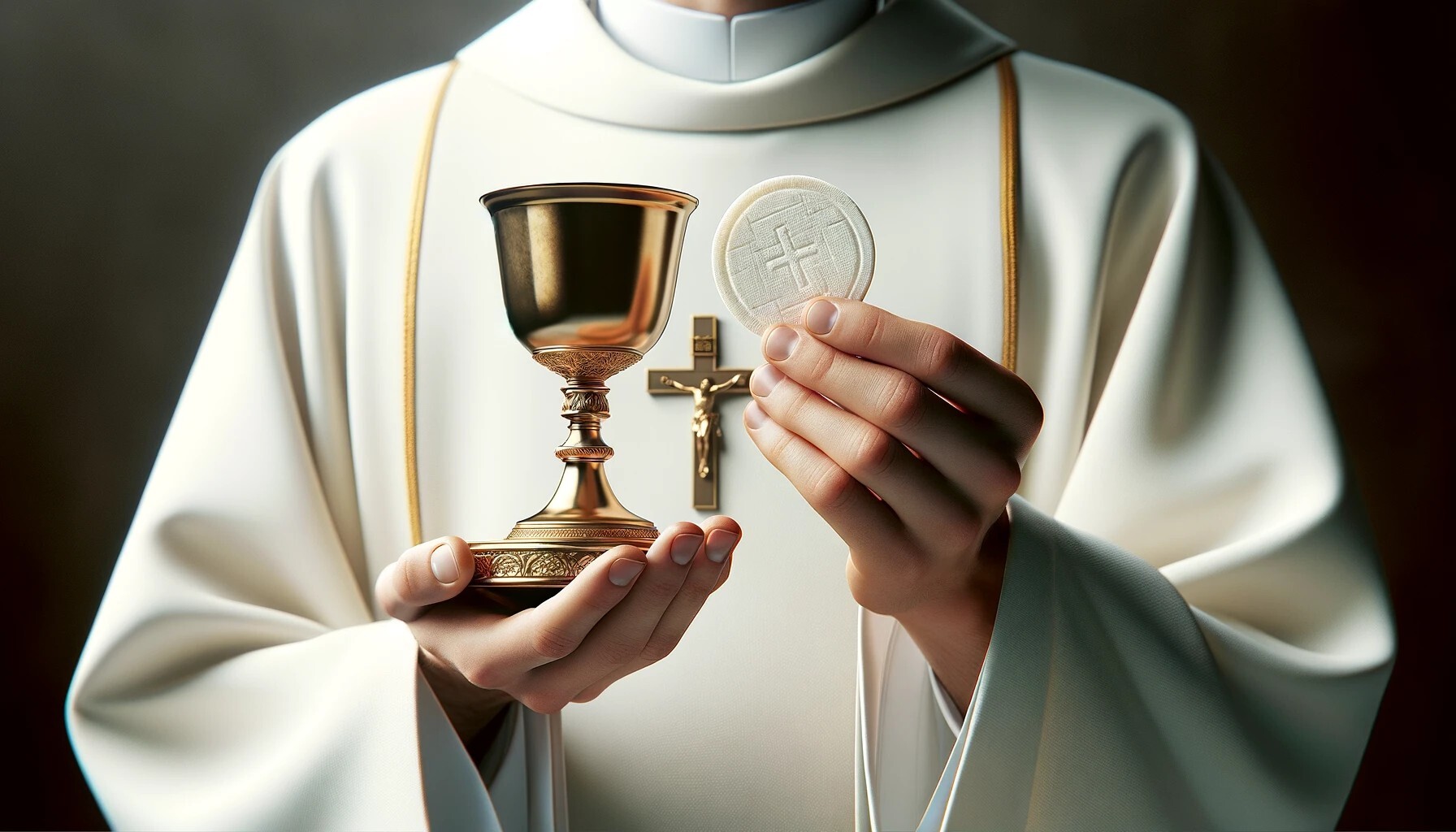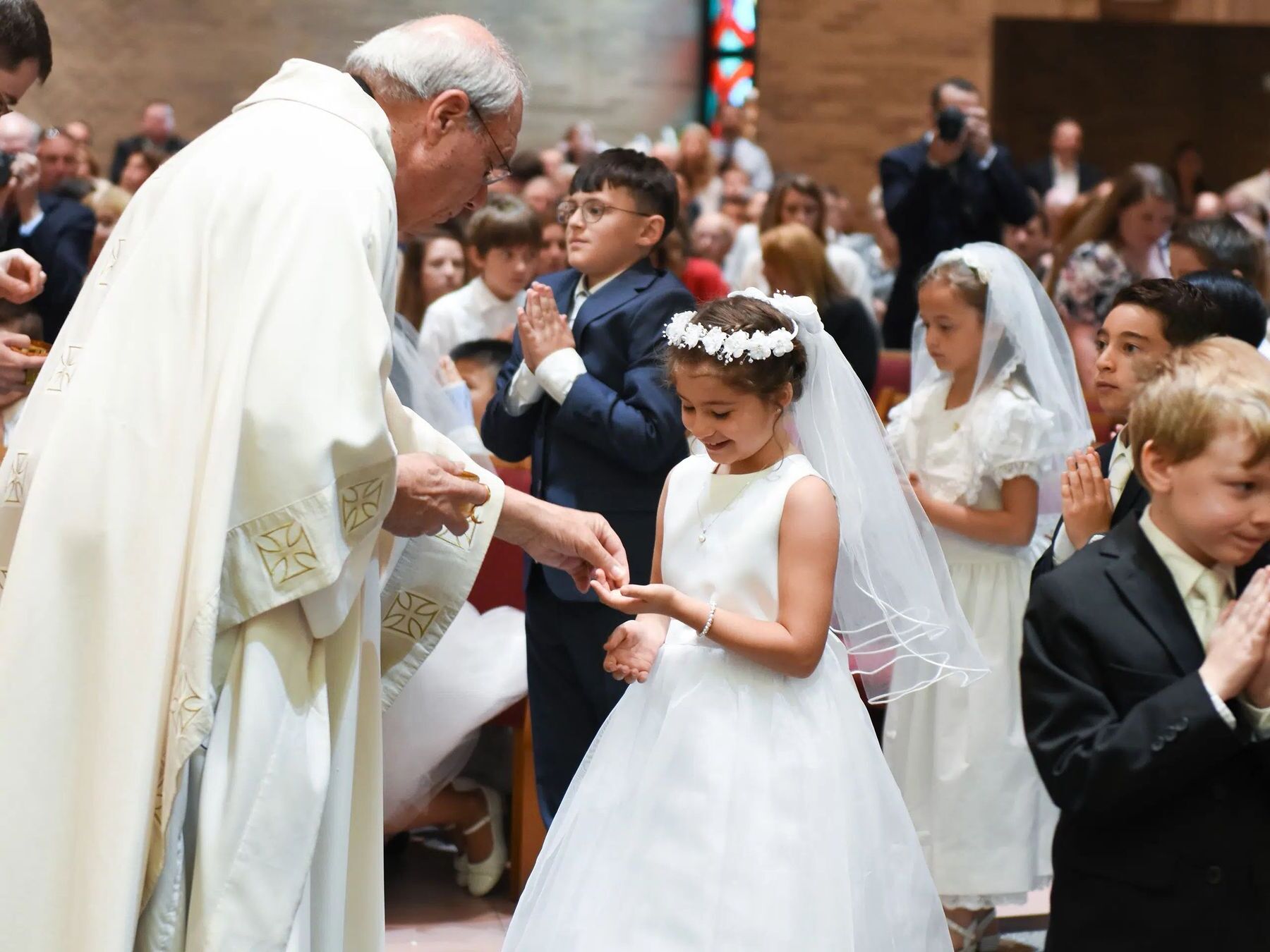
Holy Communion, also known as the Eucharist, is a significant ritual in many Christian denominations. This sacred practice involves consuming bread and wine, symbolizing the body and blood of Jesus Christ. Why is Holy Communion important? It serves as a profound reminder of Jesus' sacrifice and a means to foster unity among believers. The ritual dates back to the Last Supper, where Jesus shared bread and wine with his disciples. Different denominations have unique interpretations and practices surrounding this sacrament. Some believe in transubstantiation, where the bread and wine become the actual body and blood of Christ, while others see it as symbolic. Understanding these diverse perspectives can deepen one's appreciation for this ancient tradition.
What is Holy Communion?
Holy Communion, also known as the Eucharist, is a sacred Christian rite. It commemorates Jesus Christ's Last Supper with his disciples. Let's dive into some fascinating facts about this important tradition.
- Origin: Holy Communion traces back to the Last Supper, where Jesus shared bread and wine with his disciples.
- Meaning: The term "Eucharist" comes from the Greek word "eucharistia," meaning thanksgiving.
- Symbols: Bread represents Jesus' body, while wine symbolizes his blood.
- Frequency: Different Christian denominations celebrate Communion at varying frequencies, from daily to monthly.
- First Communion: In many traditions, children receive their First Communion around the age of seven or eight.
- Transubstantiation: Catholics believe in transubstantiation, where bread and wine become the actual body and blood of Christ.
- Consubstantiation: Some Protestant denominations believe in consubstantiation, where Christ's presence coexists with the bread and wine.
- Memorialism: Other Protestant groups view Communion as a symbolic act of remembrance.
- Communion Elements: Some churches use grape juice instead of wine, especially in denominations that avoid alcohol.
- Communion Wafers: Many churches use unleavened bread or wafers, reflecting the bread used at the Last Supper.
Historical and Cultural Significance
Holy Communion has a rich history and cultural significance across various Christian traditions. Here are some intriguing historical and cultural facts.
- Early Church: In the early Christian church, Communion was often part of a larger communal meal called an "agape feast."
- Medieval Practices: During the Middle Ages, laypeople rarely received Communion, often only once a year.
- Reformation Impact: The Protestant Reformation brought significant changes to Communion practices, emphasizing more frequent participation.
- Eastern Orthodox: In Eastern Orthodox Christianity, Communion is considered a mystery and is central to worship.
- Anglican Tradition: The Anglican Church maintains a middle ground, combining elements of both Catholic and Protestant practices.
- Cultural Variations: Different cultures incorporate unique traditions into their Communion services, such as specific prayers or hymns.
- Art and Architecture: Many churches feature altars and stained glass windows depicting the Last Supper and Communion scenes.
- Communion Vessels: Chalices and patens used in Communion services are often made of precious metals and intricately decorated.
- Communion in Art: Famous artworks, like Leonardo da Vinci's "The Last Supper," highlight the importance of this sacrament.
- Modern Adaptations: Some contemporary churches use individual cups and pre-packaged Communion elements for convenience and hygiene.
Theological Perspectives
Theological interpretations of Holy Communion vary widely among Christian denominations. Here are some key theological insights.
- Sacrament: In many Christian traditions, Communion is considered a sacrament, a visible sign of God's grace.
- Real Presence: The belief in the real presence of Christ in the Eucharist is central to Catholic and Orthodox theology.
- Symbolic Interpretation: Many Protestant denominations view Communion as a symbolic act rather than a literal transformation.
- Communion of Saints: Some traditions believe that taking Communion connects believers with the saints and the entire church community.
- Forgiveness of Sins: Receiving Communion is often associated with the forgiveness of sins and spiritual renewal.
- Unity: Communion is seen as a unifying act, bringing believers together in faith and fellowship.
- Eschatological Significance: Some theologians view Communion as a foretaste of the heavenly banquet in the Kingdom of God.
- Open vs. Closed Communion: Different churches have varying practices regarding who can receive Communion, with some offering it to all baptized Christians and others restricting it to members of their denomination.
- Preparation: Many traditions emphasize the importance of self-examination and repentance before receiving Communion.
- Communion Prayers: Specific prayers and liturgies are often used during Communion services, reflecting the theological beliefs of the denomination.
Final Thoughts on Holy Communion
Holy Communion, also known as the Eucharist, holds deep significance in Christian traditions. It symbolizes unity, remembrance, and the sacrifice of Jesus Christ. Celebrated differently across denominations, this sacred ritual involves bread and wine, representing Christ's body and blood. Some churches use unleavened bread, while others prefer leavened. The frequency of Communion varies too—some partake weekly, others monthly or on special occasions.
Understanding the diverse practices and meanings behind Holy Communion enriches one's appreciation of this ancient tradition. Whether you're a devout participant or just curious, these 30 facts offer a glimpse into the profound spiritual and communal aspects of the Eucharist. Embrace the knowledge, share it with others, and deepen your connection to this enduring Christian practice.
Was this page helpful?
Our commitment to delivering trustworthy and engaging content is at the heart of what we do. Each fact on our site is contributed by real users like you, bringing a wealth of diverse insights and information. To ensure the highest standards of accuracy and reliability, our dedicated editors meticulously review each submission. This process guarantees that the facts we share are not only fascinating but also credible. Trust in our commitment to quality and authenticity as you explore and learn with us.


